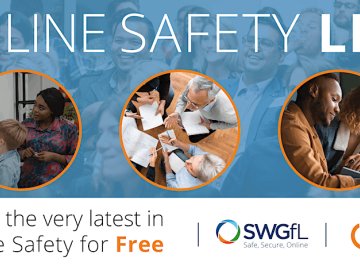With the start of the new term, the Professionals Online Safety Helpline has released several new resources to help support teachers and professionals working with young people. The latest resources will assist education establishments in accessing the common reporting routes for social media and provide support and advice to those affected by impersonation.
Alongside the latest guidance on reporting content online, the Professionals Online Safety Helpline has also developed a new resource to support teachers and professionals working with young people through sexting incidents.
Impersonation Online
The Helpline has seen a rise in cases of teachers and schools having their social media accounts impersonated online. This concerning trend can be incredibly distressing and often hard to address within school settings, whilst causing damage to the individual's or organisation's online reputation.
In 2022, there was a 75% rise in cases from 2020 about professionals concerned with their online reputation. Many of these cases involved the Helpline supporting schools that have experienced challenges with social media posts related to content that might negatively impact the school.
The new impersonation guidance aims to support professionals with online reputation concerns involving impersonation. The guidance highlights the different ways to report content depending on the social media platform involved. Alongside this, the guidance explains the preventive measures that can be put in place to help avoid an impersonation attempt.
To find out more about how to update your privacy settings online, you can download the SWGfL Social Media Checklists, which will guide you through the available privacy settings.
Reporting through Social Media
With so many social media platforms being used within education establishments, it can be hard to find out where to go to make a report. In 2022, the Helpline supported over 3,000 cases regarding social networks, assisting in reporting thousands of accounts for professionals working with children.
To make the reporting process easier, the Helpline has developed new guidance to help people access the community guidelines and reporting options available to individuals.
View the latest Reporting Guidance here.
New Sexting Guidance
Sexting continues to be a concern that many educational establishments reach out to the Helpline about for support. Cases involving sexting are often multifaceted and complex, and every school will have different safeguarding policies to help address a sexting incident.
The Helpline's latest guidance signposts both DSLs and non-DSLs to the correct government guidance, alongside providing information on the different ways to respond to a sexting incident and the various factors to consider as part of the safeguarding and reporting process.
The guidance also gives information on the resources and services available to help people affected by sexting, with support for teachers, parents, and young people.
You can access the Helpline's sexting guidance here.
Further Support
If you are a professional working with children or young people, you can contact the Professionals Online Safety Helpline for advice about any online safety concern you or a young person in your care may be having.
The Helpline is currently open Thursday and Friday, from 10 am to 4 pm, and can be contacted by calling 0344 381 4772 or by emailing help@saferinternet.org.uk. To find out more information and access the latest guidance and resources, you can visit the POSH website below.






